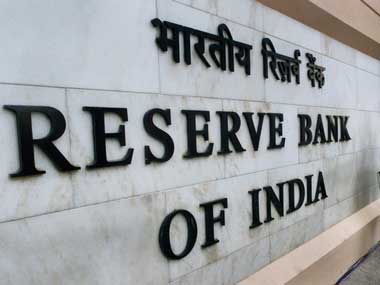Three years after the micro-finance crisis in several states, the country is nowhere near a new law to regulate malpractices in micro-lending. The proposed central law has run afoul of the Reserve Bank of India which has questioned whether Parliament can even enact such a law. The central bank has also expressed its inability to regulate all micro finance institutions including specifically those that are not incorporated entities.
 The Centre had proposed the Micro Finance Institutions (Development & Regulation) Bill in 2012. The Bill envisages the RBI as the sole regulator for all micro finance institutions (MFIs) including even those that are not companies. MFIs which are not companies usually carry out business on a small scale and operate in remote areas. This is the reason for the central bank saying that it would not be able to regulate such entities.
Deposing before the Standing Committee of Finance in New Delhi today, RBI Governor Raghuram Rajan and other central bank officials made it clear that the organizational set up of the central bank is not suited for regulating and supervising such entities. “Effective regulation of such entities would only be possible by authorities who have the necessary reach and wherewithal to cover remote areas. The regulation of such entities by the RBI or any central authority, which does not have a local presence, could prove to be both ineffective and expensive”, the RBI said.
Sources have told CNBC TV18 that given this and other reservations over the proposed Bill, it is likely that the Standing Committee headed by former finance minister Yashwant Sinha would seek changes to the Bill.
The Bill, introduced in Lok Sabha in May, 2012 by the then Finance minister Pranab Mukherjee, sought to change a situation where the microfinance sector was without a full fledged regulator. A practice of self-regulation existed under the aegis of the Micro Finance Institutions Network.
In 2010, the MFI sector hit a huge roadblock after the state of Andhra Pradesh passed an Ordinance and then a full fledged law to regulate such institutions and their lending rates in the state. That crisis led to some other states attempting similar laws in a bid to clamp down on malpractices in micro lending.
The central Bill is supposed to override state laws and ensure central intervention in this sector.
It is this attempt that seems to be now floundering badly.
For starters, while Parliament has the power to enact laws for regulating and winding up corporations in the banking, insurance and financial sector under entry 43 of the first list of the VII Schedule of the Constitution, a separate entry 32 of the second list provides states the power to make laws to regulate and wind up corporations other than those mentioned in the first list. In addition, money lending is a state subject under entry 30 of the second list.
This is the reason that the RBI argues that since MFIs are micro lenders, the power to make laws to regulate lending by entities which are not covered by the first list, is only with the states. It was this power that Andhra Pradesh exercised in late 2010 when it enacted a law on MFIs, which also covered non-banking financial companies. The latter entities are regulated by the RBI. Many NBFC’s have since challenged the law. On its part, the RBI told the Courts that the state does not have the competence to enact such a law. It adopted the same stance in similar matters before the Supreme Court and High Courts of Gujarat and Karnataka.
It is thus that the RBI is of the considered view that if MFIs, which are not companies, are covered by a central law, a question mark over the legislative competence of Parliament would arise in this regard. “The RBI’s submission is that Parliament does not have the legislative competence under Article 246 of the Constitution read with entries 30 and 32 of the second list to make a law for MFIs that are not companies”, sources said.
The RBI has also made it clear that if the intention of the central government is to have a uniform law for MFIs operating in different states, the power of Parliament to enact a law for states under Article 252 will have to be invoked. “The RBI feels that it would be appropriate to enact a model law on MFIs and give the discretion to states to adopt it. This was the mechanism adopted for chit funds too”, sources added.
Financial market experts concur with this view. “There are small so called MFIs in every backyard. RBI cannot possibly regulate all of them. This aspect of the MFI Bill was impractical. In fact many in the RBI maintain it does not even have the wherewithal to supervise the NBFC-MFIs. They believe, like cooperative banks and road-side gold pawn shops, it should be a state government preserve”, said Latha Venkatesh of CNBC TV18.
However, as propriety demands, the RBI has put in a caveat on this. Saying that in the event the centre decides to entrust this responsibility to it, the RBI has sought further consultations before a law is enacted.
There are 10 other suggestions that the RBI has made on the Bill provisions. It has said that the definition of micro credit should only cover unsecured credit and that the power to supersede MFI boards should be one without the need for prior notice.


)
)
)
)
)
)
)
)
)



